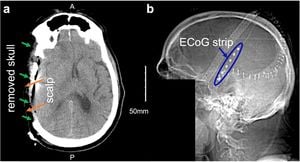North Holland is set to witness significant disruption as garage workers, bike mechanics, and auto dealers make their voices heard through a one-day strike on February 11. The action, facilitated by labor unions CNV and FNV, aims to resolve the longstanding conflict with employers represented by BOVAG over wages and working conditions.
The strike is part of a broader campaign involving multiple regions, with prior strikes occurring recently in Ridderkerk and Groningen. Participants will gather from 8:15 to 9:30 AM at Bind Op Het Hembrug, Middenweg 107, Zaandam, where provisions like coffee and pastries will be available to those taking part.
The core demand from the unions is straightforward: workers are calling for a minimum wage increase of 6%. This demand stems from dissatisfaction with BOVAG’s offer of only 2.3% over 18 months, which several employees argue is insufficient to keep up with rising inflation and would result in decreased purchasing power.
Nicole Engmann of the CNV emphasized the need for fair compensation, stating, "If it’s up to the employers, their employees will see their purchasing power decline over the coming period." The unions argue this offer does not adequately reflect the economic realities faced by workers, particularly when many claim to have faced stagnation in wages for too long.
The importance of this strike cannot be overlooked, as it involves approximately 84,000 workers across the automotive service sector, which includes garages, truck companies, bike repair shops, and rental services. The ramifications of the strike are expected to extend beyond delayed repairs and maintenance, affecting customer service across the region.
Engmann pointed out the detrimental effects of labor shortages, explaining, "The rising workload combined with the influx of clients waiting for service creates unbearable stress. To remedy this, the industry needs incentives: good contract negotiations, special provisions for younger and older workers, and flexible leave options." Yet, there has been worry among union leaders about management’s unwillingness to engage meaningfully.
Engmann criticized the employer’s actions, claiming, "Their stance seems focused on regaining losses from the previous collective agreement, which they deemed too costly." She argues the previous wage agreements were merely compensatory adjustments for inflation, and taking steps backward could drive workers to seek employment opportunities outside the automotive service industry.
Meanwhile, BOVAG claims their proposal is reasonable under current economic circumstances, but the unions reject this notion, insisting their workers deserve far more than what is currently being offered. CNV's shift to action, just days before the strike, came after unsuccessful negotiations. Engmann insisted there would be no backing down, stating, "We’ll continue until the employers are ready to take steps toward our direction." This sentiment reflects broader unrest within the labor market.
The regional strike on February 11 follows earlier demonstrations, which showed strong turnout and solidarity among workers. The unions are galvanized and prepared for extended actions if necessary. Leaders hope the strike will push employers to reconsider their reluctance and result in meaningful dialogue concerning workers’ rights.
Workers are determined to stay united as they strive for improved conditions, culminating here with the call to action. The union members articulate their concerns clearly, linking the dignified work environment to the broader question of respect for their professional contributions.
It’s evident the actions of North Holland’s workers will be significant not only for local automotive services but also as part of wider labor movements seeking to redefine the relationship between labor and employers amid economic pressures. The outcome of this and future strikes could set precedents for labor negotiations across the sector.



